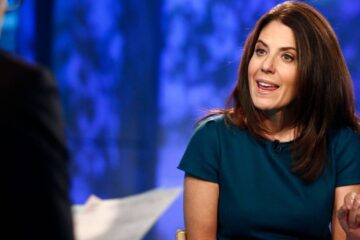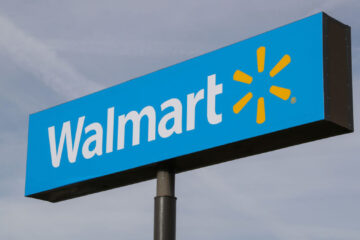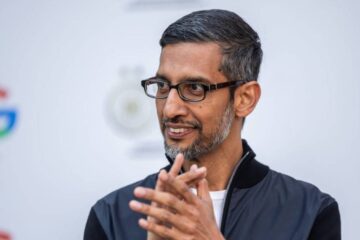Tariffs and their effect on economic systems may have been covered in that Macro 101 course most non-MBAs slept through, but it seems that President Donald Trump’s tariff war has taken the business community by surprise.
Despite Trump making it no secret that tariffs are a key part of his administration’s economic policy, many in the business community endorsed him over his opponent, Kamala Harris, in last November’s presidential election.
💵💰Don’t miss the move: Subscribe to TheStreet’s free daily newsletter 💰💵
During the run-up to last year’s election, he made it very clear that his strategy was to resume and expand the tariffs he implemented seven years ago.
Many on Wall Street didn’t seem to care at the time.
The average American voter can be forgiven for not knowing what tariffs would do to the economy in the short term (54% said Trump was better equipped to deal with the economy compared to 45% for Kamala, according to an October Gallup poll), but CEOs knew.
Still, major corporations like Chevron, ExxonMobil, Amazon, Meta, Uber, Qualcomm, Elliott Management, Boeing, Comcast, Verizon, and Johnson & Johnson all contributed at least a million dollars to the Trump inauguration.
Related: Donald Trump gives car buyers a lifeline with latest decision
Individual billionaires like casino magnate Steve Wynn, Home Depot’s former head honcho Bernard Marcus, Secretary of Education Linda McMahon, Mark Zuckerberg, and Jeff Bezos also gave at least $1 million.
Megadonors such as Elon Musk and Timothy Mellon gave $290 million and $250 million, respectively, to his campaign, according to media reports.
Trump wasn’t the only candidate who got love from the business community.
In late September, just weeks before the election, a group of more than 400 economists endorsed former Vice President Kamala Harris and her vision for the U.S. economy.
“The choice in this election is clear: between failed trickle-down economic policies that benefit the few and economic policies that provide opportunity for all,” the endorsement document said, but even these esteemed economists failed to address the elephant that Trump had somehow snuck into the room: tariffs.
CEOs warn about effects of Trump tariffs
In a September 2024 interview with MSNBC, Harris highlighted notable economists’ prediction that Trump’s economic plan would shrink the economy, increase inflation, and invite a recession by the middle of 2025.
Nearly a year later, the business community seems to be coming around to Harris’ way of thinking, sounding the alarm about a strategy they say could lead to some real pain for American consumers.
On Thursday, the Wall Street Journal compiled a list of executives who, during their earnings calls, lamented the volatility of tariffs imposed on their businesses.
American Airlines, Southwest Airlines, and Alaska Air Group all pulled their full-year forecasts due to low visibility. The same goes for consumer goods giant Procter & Gamble, which said it was considering increasing prices to offset tariff expenses, military defense contractor RTX, and real estate corporation PulteGroup.
“We don’t know what is going to happen,” Robert Isom, chief executive of American Airlines, said during his earnings call. ”What does that mean? It means that we don’t hire as much. It means that we don’t bring on as many planes, potentially. It means a reduction in overall economic activity.”
Meanwhile, the Trump administration lauded the tariffs’ benefits, which it says will force companies to bring jobs back to the U.S.
“Under President Trump, business leaders are making trillions in historic investment commitments [and] driving the robust private-sector hiring reflected in multiple jobs reports,“ White House spokesman Kush Desai told the Journal.
This statement seems to contradict Trump’s recent actions to give carveouts to the automotive and technology industries, softening the incentive for companies like Apple and Honda to onshore more of their operations in the U.S.
But U.S. Commerce Secretary Howard Lutnick recently said, “Those products are going to be part of the semiconductor sectoral tariffs, which are coming….We need to have these things made in America.”
Putting tariffs on certain items, pulling them off, and then putting them back on again is exactly the type of volatility CEOs were bemoaning in their earnings calls this week.
“The level of uncertainty is too high. It’s not healthy and it’s affecting investment, spending and planning, and that will have an effect on growth and the economy,” Goldman Sachs CEO David Solomon recently said.
The stock market has suffered under President Donald Trump.
Image source: Nagle/Bloomberg via Getty Images
Liberation Day tariffs are here to stay
The Dow Jones Industrial Average has suffered four 1,000-point-loss days since April 2, dubbed Liberation Day by presidential decree. The Dow had previously suffered such a loss only seven other times in its 130-year history.
While market swings this wide are outside the norm, market turbulence is generally not. President Trump’s trade war has riled markets in the past, including during his first term as President from 2017 to 2020.
Related: China may have made its first big mistake in U.S. trade war
Trump has had a higher pain threshold than his supporters on Wall Street when it comes to market losses, but recent dips in the U.S. dollar and bond markets are starting to weigh on his administration.
Even for industries like automotive that appear to be getting special treatment, President Trump’s carveouts aren’t necessarily paying off.
“There’s not a lot of clarity around which tariffs are stacked on top of each other,” Ryan Mandel, auto physical damage solutions claims performance director for collision repair company Mitchell International, recently told Repair Driven News.
Related: Veteran fund manager unveils eye-popping S&P 500 forecast


